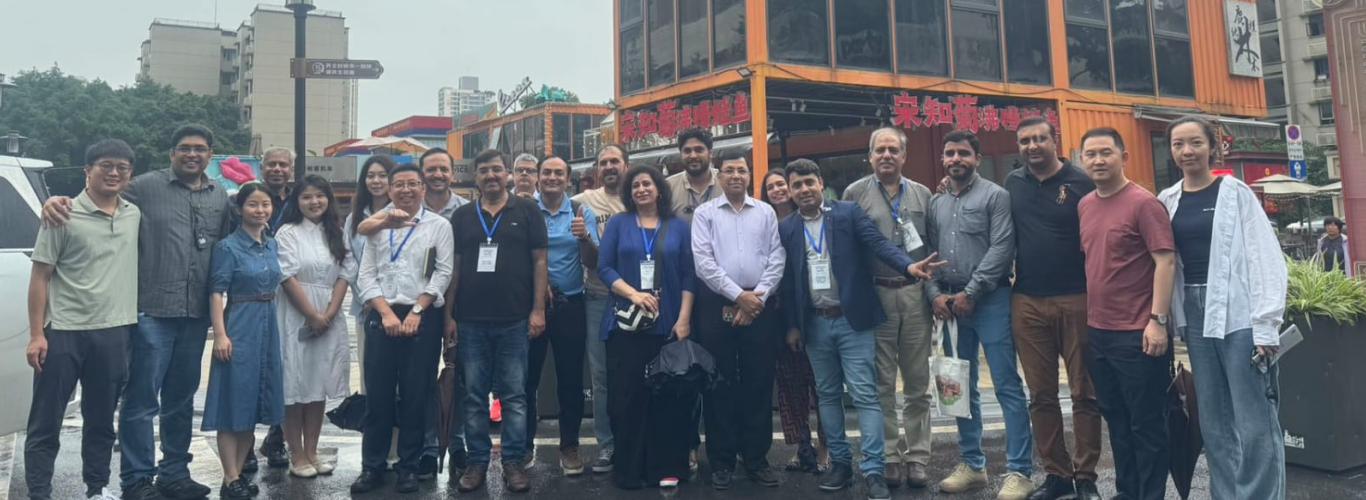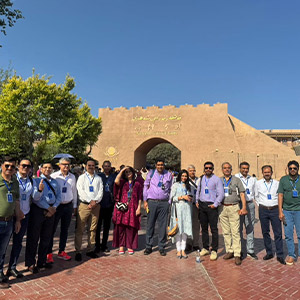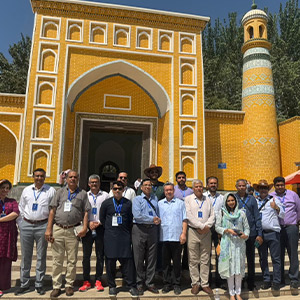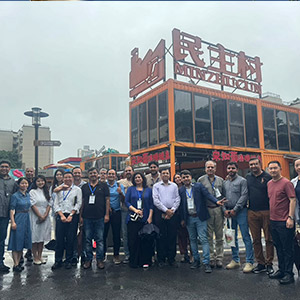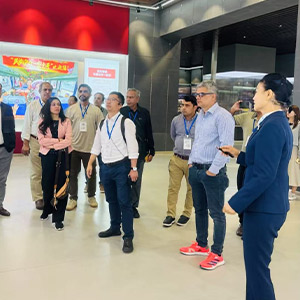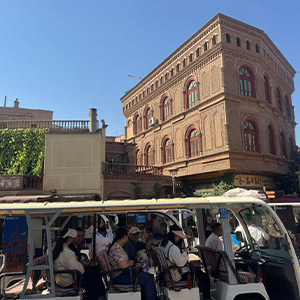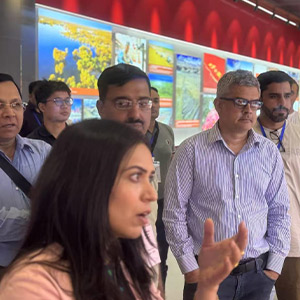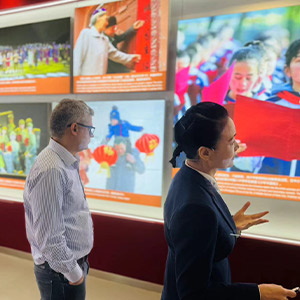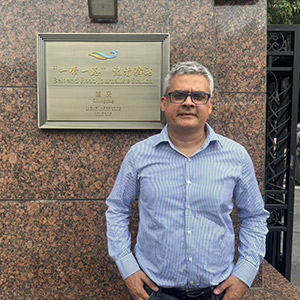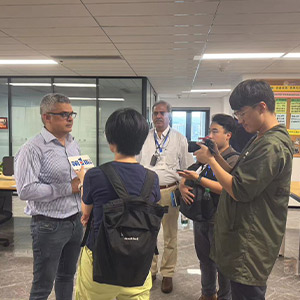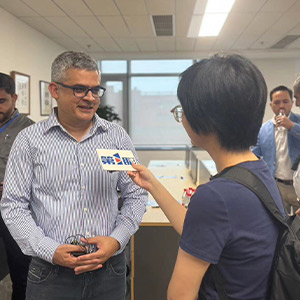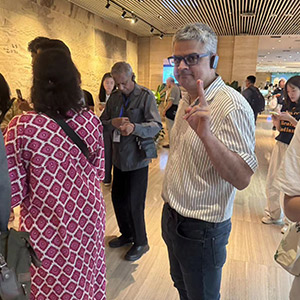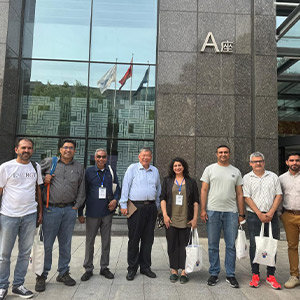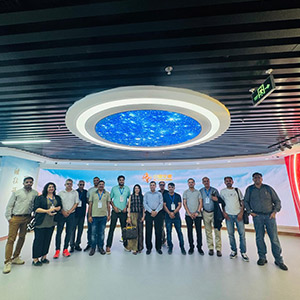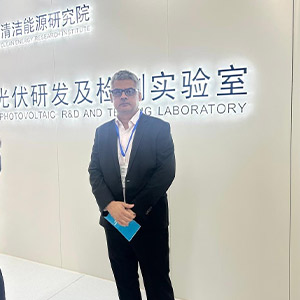Building Bridges: CCLS Concludes Multi-Sectoral Engagement Tour in China
Dr. Sikander Ahmad Shah, Director of the Centre for Chinese Legal Studies (CCLS) at the Shaikh Ahmad Hassan School of Law, Lahore University of Management Sciences (LUMS), participated in a series of high-level institutional visits and strategic engagements across Beijing, Chongqing, and Xinjiang as part of a multi-sectoral delegation to China in June 2025. The visit marked a significant step in furthering CCLS’s commitment to academic diplomacy, sustainable innovation, and regional legal-economic cooperation under the broader framework of Pakistan-China engagement.
The mission focused on four central areas: clean energy and sustainable technology, public diplomacy and narrative-building, urban governance, and cultural heritage. Through these engagements, the delegation gained critical insights into China’s institutional and developmental landscape while also identifying new avenues for future academic-industrial collaboration, particularly in areas related to arbitration, regulatory reform, and infrastructure law.
The visit commenced in Beijing, where Dr. Shah engaged with representatives at the Huaneng Clean Energy Research Institute. The institute’s ongoing research in photovoltaic technologies and its emphasis on sustainability highlighted China’s ambition to lead global transitions in energy systems. This engagement provided a valuable entry point for cross-disciplinary dialogue in energy law, decarbonization policy, and legal mechanisms for technology transfer. The delegation also visited the BAIC Super Factory in the Miyun District, a leading New Energy Vehicle (NEV) production hub that operates highly automated manufacturing lines and integrates advanced sustainability benchmarks. With an annual production capacity of 150,000 vehicles and a strong emphasis on innovation and environmental compliance, the factory exemplifies China’s industrial strategy in the Beijing-Tianjin-Hebei corridor and offers rich material for research in industrial arbitration, environmental law, and transnational regulatory frameworks.
In the domain of media and diplomacy, Dr. Shah visited the Belt and Road Journalists Station in Beijing, which functions as a platform for shaping cross-border narratives around development, cooperation, and identity under the Belt and Road Initiative. The visit aligned with CCLS’s academic focus on statecraft, media diplomacy, and international law. The delegation also visited the Theme Exhibition on Counterterrorism and Extremism in Xinjiang, which provided a curated overview of China’s legal and policy responses to regional security challenges. While politically sensitive, the exhibition offered insight into the legal pluralism and governance models underpinning China’s counter-extremism strategies and their broader implications for comparative law and national security.
The delegation’s itinerary also included a cultural and heritage-focused stop at the historic Id Kah Mosque in Kashgar, Xinjiang. As one of the largest and oldest mosques in China, the site represents centuries of Islamic architectural and cultural continuity in the region. For CCLS, this visit served as a meaningful opportunity to examine the intersections of cultural preservation laws, minority rights, and the geopolitics of religious diplomacy. The mosque visit reaffirmed Pakistan’s deep cultural and religious connections with Western China and opened potential pathways for CCLS to act as a bridge in legal research and discourse on transnational identity and international cultural law.
In Chongqing, the delegation toured the Minzhucun Urban Renewal Project in the Jiulongpo District. This rehabilitated housing cluster, once a deteriorating mid-20th-century neighborhood, has been transformed under a model emphasizing preservation, renovation, demolition, and new construction. Framed within the broader vision of “Chinese-style modernization with people at the center,” the project provided a practical case study in participatory urban governance and legal frameworks supporting adaptive city planning. The visit highlighted the potential for comparative legal research in urban law and governance models that balance tradition with innovation.
CCLS’s participation in this multi-sectoral visit underscores the growing importance of cross-border academic engagement in shaping the legal dimensions of regional development and cooperation. By engaging with diverse institutional environments—from energy research centers and automotive hubs to religious landmarks and urban renewal zones—CCLS continues to expand its vision of law as an evolving field shaped not only by texts but also by the lived realities of institutions, cities, and cultures.

